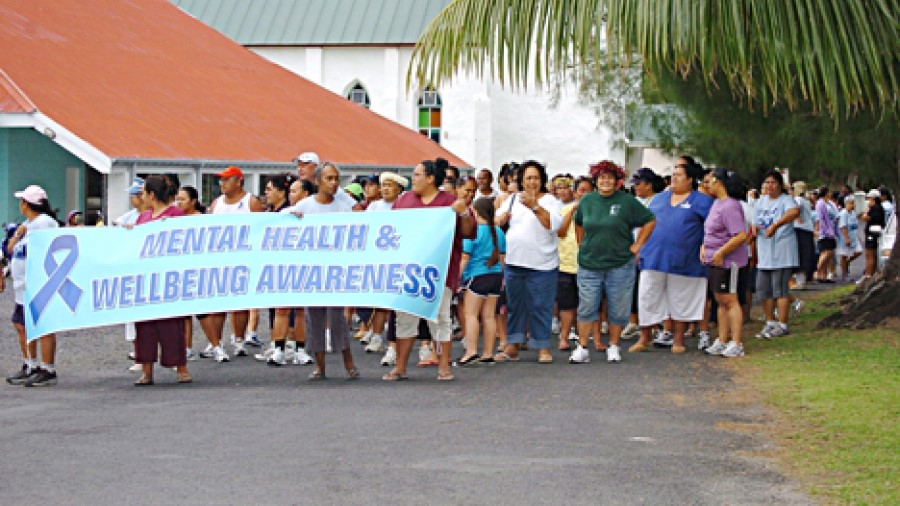Pandemic triggers 25 percent increase in mental health issues
Wednesday 13 July 2022 | Written by Matthew Littlewood | Published in Health, National

PHOTO: FILE/14100823
The team leader behind a mental health survey canvassing more than 1100 people in Rarotonga and Aitutaki hopes it will eventually be used to improve the Cook Islands’ response to mental health issues.
The survey, which took place over April to July this year, asked people questions about their mental health and experiences. People were picked at random for the survey, and received a small atinga for completing it.
Project lead Dr Samuel Manuela said it received a lot of support from Te Marae Ora (TMO) health ministry, who hope to use the data from the survey to better target their mental health resources.
Manuela returned to New Zealand yesterday after spending six months in the Cook Islands working and developing the survey.
“It’s the first survey of its kind in the country, people were happy that we were doing something like this,” Manuela said.
Manuela said for many of those that took the survey, it was the first time they had thought about their own mental health in relation to anxiety and depression.
“They were given the opportunity to think ‘what does anxiety and depression look like’ in their own lives, and maybe it will lead them to seek help, if necessary. People might become more aware of the symptoms,” he said.
“There is still a lot of stigmas around mental health in the Cook Islands, but the conversation is opening up.”
Manuela said since the Covid-19 pandemic began, there appeared to be an increase of people experiencing anxiety, depression and other mental health issues.
“Of those that we surveyed, 25 per cent of them said Covid-19 affected their mental health in some way,” he said.
The survey canvassed about 950 people in Rarotonga and about 150 in Aitutaki, with the youngest person surveyed age 16 and the oldest in their 80s.
“If we were to do this again, I would love to further reach out into the Pa Enua to see what their challenges are,” Manuela said.
“I’m really hoping that this survey will help the Government approach mental health issues in the country, and further open up the conversation.”
Manuela said there had been an increased response to mental health issues in the Cook Islands over the past five years.
“The new mental health unit at the hospital is a positive sign. TMO need more mental health staff, but understaffing is an issue all over the world,” he said.
“Hopefully the survey will address how we can harness the community for grassroots mental health support. There’s a lot of strength and knowledge in the community as well.”
Manuela described the project as layered. The project was funded by the Health Research Council of New Zealand.
“There’s no one answer to addressing mental health issues, but there are multiple small things we can do to help make things better. These include talking to people you trust, being mindful that people have their own experiences, and exercising and eating healthily,” he said.
Manuela said the report would be compiled and completed within a year.












































